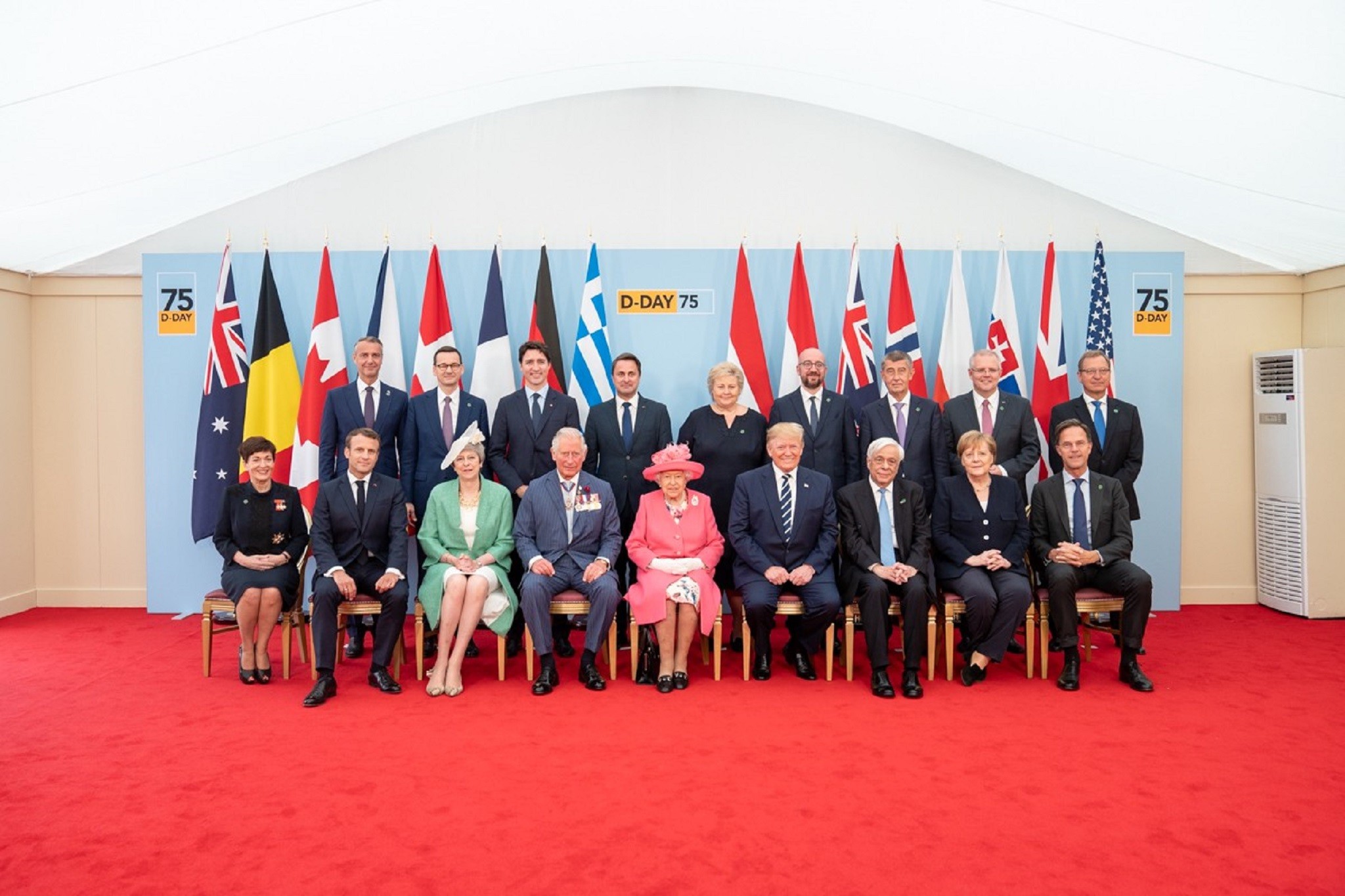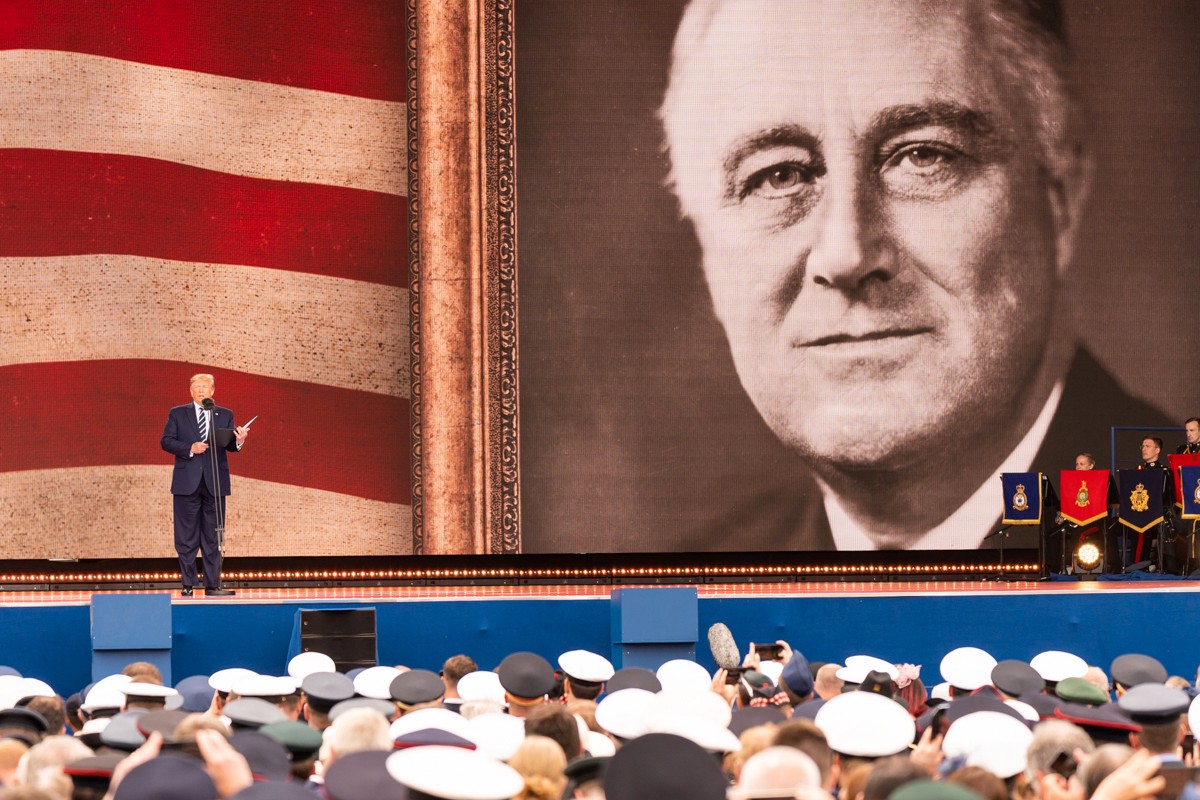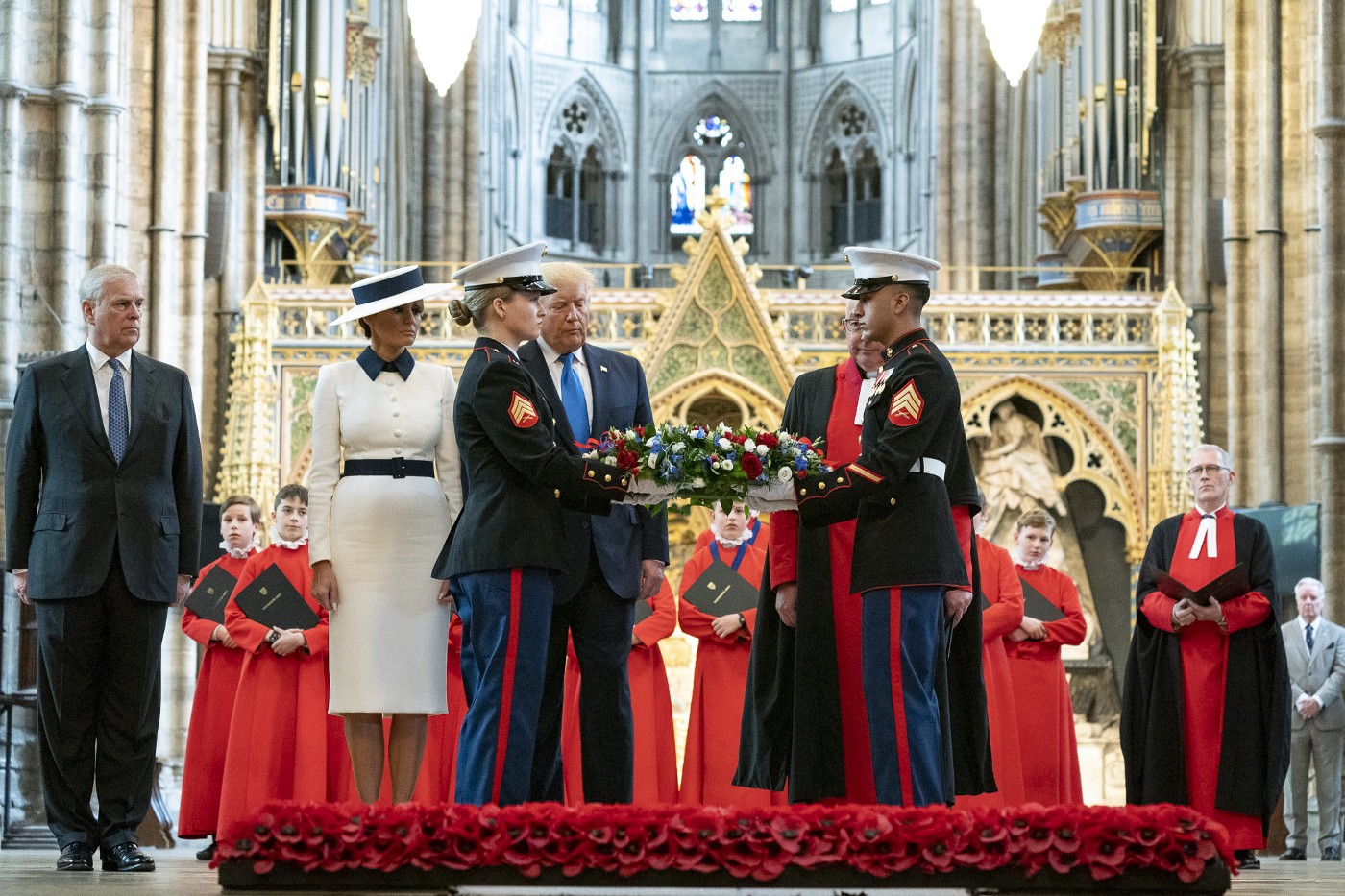Will what we have learned be enough to prevent future World Wars?

President Donald J. Trump poses for photos with D-Day Commemoration leaders Tuesday, June 4, 2019, prior to the Commemoration Ceremony honoring the 75th anniversary of D-Day in Porstmouth. (Official White House Photo by Shealah Craighead)
On this day in history, the tide turned against a terrible regime intent on inflicting its genocidal madness on the whole world. June 6, 1944 was the beginning of the end for Hitler and all his allied forces, though they hardly knew it.
Allied forces had been planning the secret attack for over a year and perhaps it was the sheer size of the largest seaborne invasion in history that took the Germans by surprise.
The invasion of Normandy, which included the landing on Omaha Beach, was dubbed Operation Overlord. It was a masterstroke against Nazi Germany.
When Allied forces stormed the beaches at Normandy, it marked the beginning of a concerted military effort to liberate Europe from Nazi occupation. At the end of the day on June 6, 1944, though the cost in Allied dead was indeed terrible, Operation Overlord had worked. Allied forces had achieved a Western front from which to fight Hitler.
One year later, the Allies achieved full victory in Europe.
Remembering the sacrifices of the soldiers who fought and honoring the dead is the very least we can do in 2019. The most important thing we can do to honor the memory of those who gave their lives on this day, 75-years ago, is to make certain the world never has another World War.
Did World War II finally turn humanity away from warfare? Has mankind learned to hate war?

Wars and Rumors of War
Since the beginning of history, mankind has been involved in an arms race to the death.
It was at the exact moment the agricultural revolution produced a surplus crop that taxation and warfare were invented. We learned that some of us could farm, instead of hunting and gathering, and feed enough for some of us to have time to do other things, like study medicine and science.
Unfortunately for mankind one of those other things was thinking up new and better ways to kill one another. That is, defend the surplus crop upon which the entire society depends from our similarly-armed neighbors. You know, they just had a drought.
The first to the chariot was a winner; they could hardly rest on their laurels as they likely faced chariots in their very next battle. If not sooner.
The first to the crossbow, the first to devise a projectile firing weapon using the controlled propulsion of gunpowder. That is clever, one must admit. Diabolical, but dead clever.
The last World War, the last major conflict to cover multiple theaters across vast distances and cover half the world with people dying in their hundreds and their thousands, saw the cumulation of ten-thousand years of human ingenuity turned to the madness of war.
It wasn’t pretty.

President Donald J. Trump and First Lady Melania Trump participate in a wreath laying ceremony at the Tomb of the Unknown Warrior Monday, June 3, 2019, at Westminster Abbey in London. (Official White House Photo by Shealah Craighead)
It was a war fought in the sky, underwater, on land, at sea. It was a war like no other. It saw the sacrifice of entire generations lost. The U.S. lost about 416,800 soldiers in the war, total casualties including civilians 418, 500. The U.K. lost 383,600 soldiers; 450,700 including civilians. French soldiers dead numbered 217,600, French civilian casualties brought the number of deaths to 567,600.
The Soviet Union lost 8,800,000–10,700,000 soldiers. 24,000,000 total casualties counting civilians. China lost 20,000,000 people, but the number could be as high as 50,000,000.
Statistics are cold. And wild estimates at best. Worldwide casualties officially list the Battle Deaths at 15,000,000; Battle Wounded 25,000,000; Civilian Deaths 45,000,000.
The real number, the real toll will never be known.
It is difficult to imagine that human minds clever enough to invent machines that fly in the sky, or bombs made from splitting atoms, can’t find more sensible solutions than war.
As the world looks back, it is with the hope that the leaders of every nation will thoughtfully reflect on what World War II cost us all. It is a cost humanity can never afford to pay again.
(contributing writer, Brooke Bell)